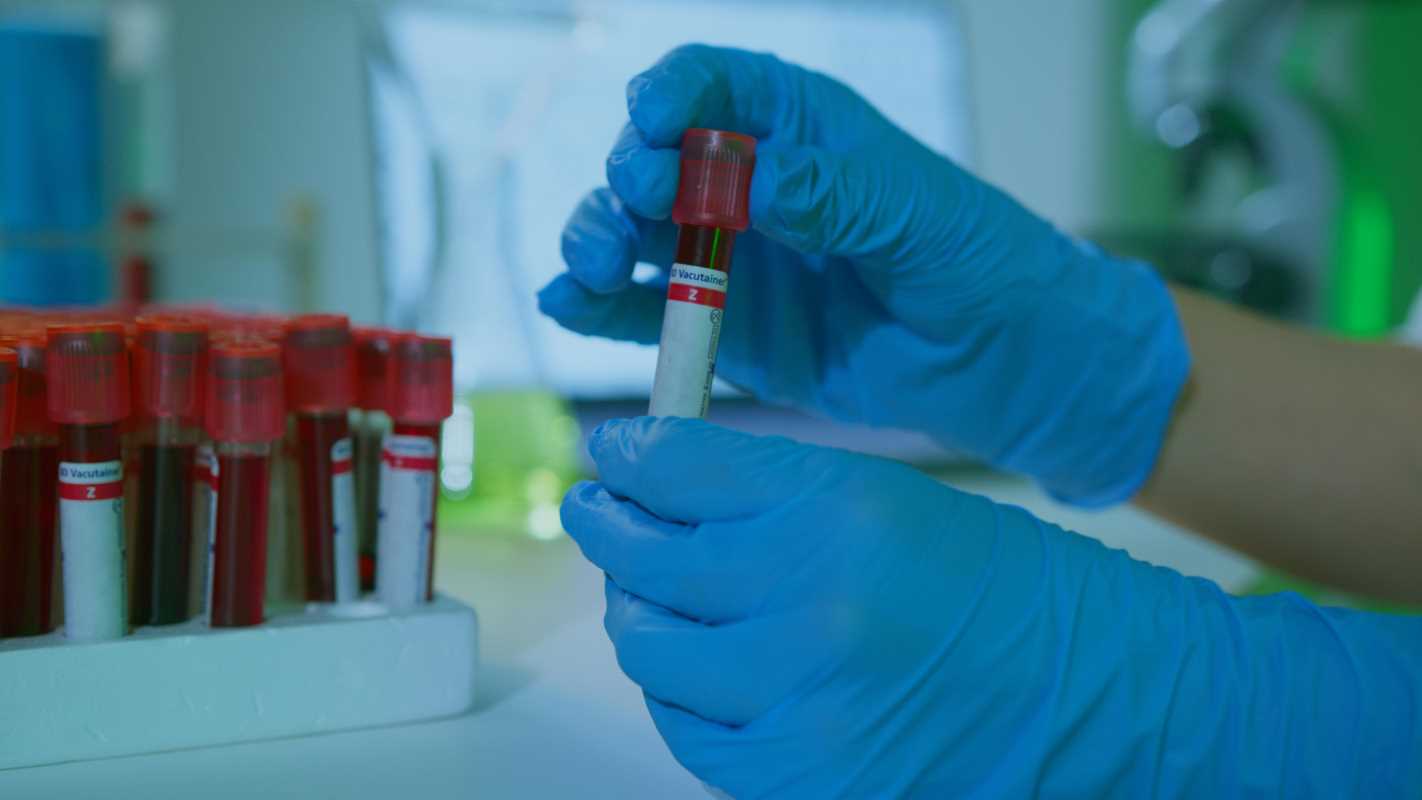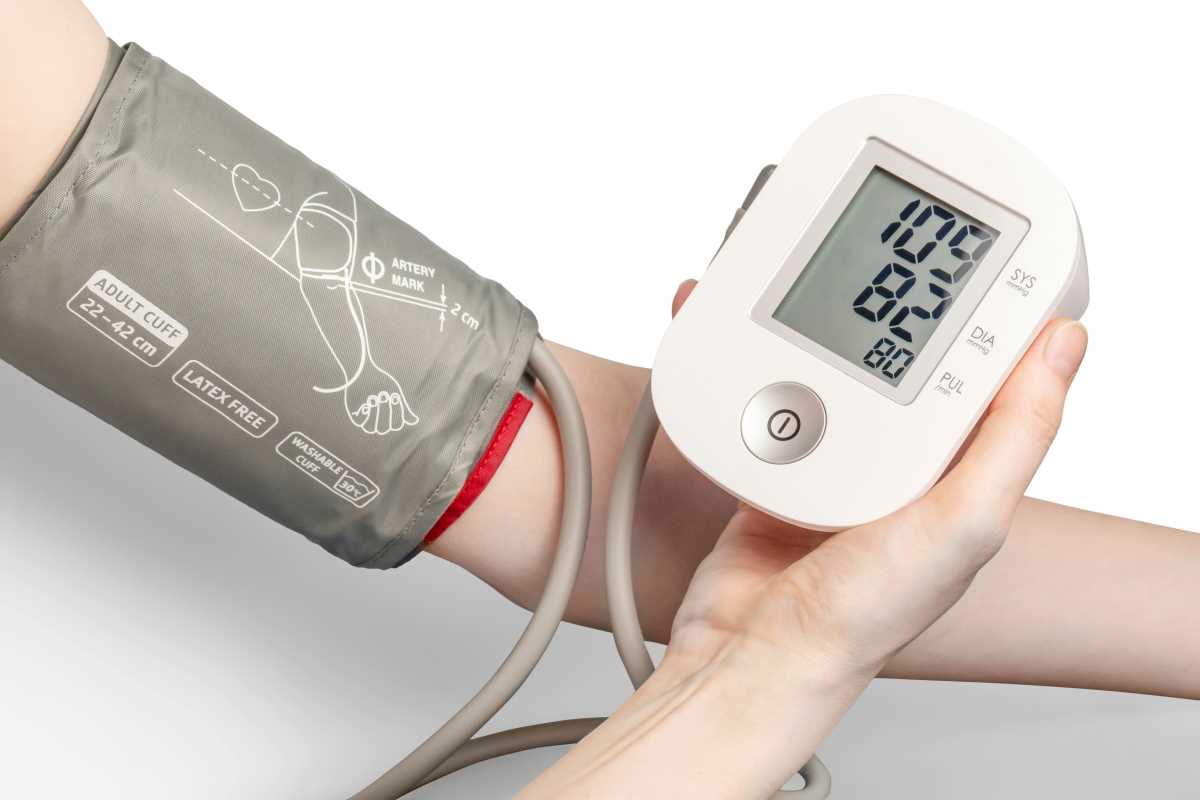Your annual physical exam includes more than just checking your weight and blood pressure. The blood work your doctor orders provides a detailed snapshot of what's happening inside your body, often revealing potential health issues before you experience any symptoms. Understanding these crucial warning signs can help you take proactive steps to protect your health and prevent serious complications down the road.
Many people receive their blood test results with little explanation beyond "everything looks normal" or "we need to watch a few things." However, learning to recognize the key markers and what they mean empowers you to have more informed conversations with your healthcare provider and take charge of your well-being during this important life stage.
Blood Work After 45
As you navigate your mid-life years, your body undergoes subtle changes that increase your risk for certain health conditions. Your metabolism may slow down, hormone levels shift, and years of lifestyle choices begin to show their cumulative effects. Regular blood testing becomes increasingly important because many serious conditions develop silently over time.
Blood tests can detect problems with your heart, liver, kidneys, thyroid, and blood sugar levels before these issues cause noticeable symptoms. Early detection often means more treatment options and better outcomes. Think of your annual blood work as an early warning system that helps you stay ahead of potential health problems.
The key lies in understanding what your numbers mean and recognizing when changes warrant attention. Let's explore the most important tests and what their results can tell you about your health.
Complete Blood Count: Your Body's Foundation
The Complete Blood Count (CBC) examines the different types of cells in your blood, providing insights into your overall health and immune system function.
Red Blood Cell Count and Hemoglobin
Low red blood cell counts or hemoglobin levels may indicate anemia, which can leave you feeling tired and weak. Common causes include iron deficiency, chronic disease, or internal bleeding. If your hemoglobin falls below normal ranges (typically 12-16 g/dL for women, 14-18 g/dL for men), your doctor will investigate potential causes.
Elevated red blood cell counts might suggest dehydration, lung disease, or a condition called polycythemia vera. While less common, these elevations require evaluation to prevent complications like blood clots.
White Blood Cell Count
Your white blood cells fight infection and disease. Elevated counts often indicate your body is battling an infection, but persistently high levels might suggest autoimmune disorders or blood cancers like leukemia.
Low white blood cell counts can signal immune system problems, certain medications' side effects, or bone marrow disorders. This makes you more susceptible to infections and requires careful monitoring.
Platelet Count
Platelets help your blood clot properly. Low platelet counts increase bleeding risk, while high counts may raise your risk of dangerous blood clots. Both conditions require medical evaluation to determine underlying causes.
Lipid Panel: Your Cardiovascular Risk Profile
Your lipid panel measures different types of cholesterol and triglycerides, providing crucial information about your heart disease risk.
Total Cholesterol and LDL
High total cholesterol (above 240 mg/dL) and elevated LDL "bad" cholesterol (above 160 mg/dL) increase your risk of heart attack and stroke. These numbers often creep up gradually during middle age, especially if you're dealing with increased stress, changing hormones, or shifts in metabolism.
The good news is that dietary changes, exercise, and medications can effectively lower these levels. Your doctor will consider your overall risk factors, including family history, blood pressure, and diabetes, when determining target levels for you.
HDL Cholesterol
Low HDL "good" cholesterol (below 40 mg/dL for men, below 50 mg/dL for women) removes harmful cholesterol from your arteries. Regular exercise, weight management, and avoiding smoking can help raise HDL levels naturally.
Triglycerides
Elevated triglycerides (above 150 mg/dL) often accompany diabetes, obesity, or metabolic syndrome. High triglyceride levels combined with low HDL cholesterol create a particularly concerning pattern that significantly increases cardiovascular risk.
Blood Glucose: Early Diabetes Warning Signs
Blood sugar testing reveals how well your body processes glucose, helping detect diabetes and prediabetes before they cause complications.
Fasting Blood Glucose
Normal fasting glucose ranges from 70-100 mg/dL. Levels between 100-125 mg/dL indicate prediabetes, while readings of 126 mg/dL or higher on two separate occasions diagnose diabetes.
Prediabetes affects millions of Americans in their 40s and 50s, often without symptoms. The encouraging news is that lifestyle changes can prevent or delay the progression to full diabetes.
Hemoglobin A1C
This test shows your average blood sugar over the past three months. Normal A1C levels stay below 5.7%, while 5.7-6.4% indicates prediabetes, and 6.5% or higher suggests diabetes.
Regular monitoring helps you and your doctor track how well you're managing blood sugar through diet, exercise, and medications if needed.
Liver Function Tests: Protecting Your Body's Filter
Your liver processes everything you eat, drink, and many medications you take. Liver function tests measure enzymes and proteins that indicate how well this vital organ is working.
ALT and AST Enzymes
Elevated ALT (alanine aminotransferase) and AST (aspartate aminotransferase) levels suggest liver cell damage. Common causes include excessive alcohol consumption, fatty liver disease, hepatitis, or certain medications.
Fatty liver disease has become increasingly common, often associated with obesity, diabetes, and metabolic syndrome. The good news is that early-stage fatty liver disease often improves with weight loss, exercise, and dietary changes.
Bilirubin Levels
High bilirubin can cause yellowing of the skin and eyes (jaundice) and may indicate liver problems, gallbladder issues, or blood disorders requiring immediate medical attention.
Kidney Function Tests: Monitoring Your Body's Filters
Your kidneys filter waste from your blood and regulate fluid balance. Kidney problems often develop silently, making regular testing crucial.
Creatinine and BUN
Elevated creatinine and blood urea nitrogen (BUN) levels indicate your kidneys aren't filtering waste effectively. Diabetes, high blood pressure, and certain medications can damage kidney function over time.
Estimated Glomerular Filtration Rate (eGFR)
This calculation estimates how well your kidneys are filtering blood. Normal eGFR stays above 90, while levels below 60 for three months indicate chronic kidney disease.
Early detection allows for treatments that can slow kidney disease progression and prevent the need for dialysis or transplantation.
Thyroid Function: Your Metabolism's Control Center
Thyroid problems become more common with age, especially among women. These tests measure how well your thyroid gland regulates your body's metabolism.
TSH (Thyroid Stimulating Hormone)
High TSH levels often indicate an underactive thyroid (hypothyroidism), causing symptoms like fatigue, weight gain, and cold intolerance. Low TSH may suggest an overactive thyroid (hyperthyroidism), leading to weight loss, rapid heartbeat, and anxiety.
Both conditions respond well to treatment, but require ongoing monitoring to maintain optimal hormone levels.
Inflammatory Markers: Hidden Health Threats
C-Reactive Protein (CRP)
Elevated CRP levels indicate inflammation in your body, which may increase your risk of heart disease, stroke, and other chronic conditions. High-sensitivity CRP tests can detect even low levels of inflammation.
Chronic inflammation often results from obesity, poor diet, lack of exercise, stress, or underlying autoimmune conditions. Addressing these factors can help reduce inflammation and protect your long-term health.
Taking Action: What to Do With Concerning Results
Don't panic if some of your numbers fall outside normal ranges. Many factors can temporarily affect blood test results, including recent illness, medications, stress, or even what you ate before the test.
Follow-Up Testing
Your doctor may recommend repeating abnormal tests to confirm results. Some conditions require multiple abnormal readings before diagnosis, while others need immediate attention.
Lifestyle Modifications
Many blood work abnormalities improve with lifestyle changes. Your healthcare provider can help you develop a plan that includes:
- Dietary modifications tailored to your specific needs
- Exercise programs appropriate for your fitness level
- Stress management techniques
- Sleep optimization strategies
- Weight management support
Medication Management
Some conditions require medication along with lifestyle changes. Don't hesitate to discuss treatment options, potential side effects, and monitoring schedules with your healthcare provider.
Disclaimer: The content provided on SuperHealthyTips is for informational and educational purposes only. This information is not intended to be a substitute for professional medical advice, diagnosis, or treatment.
 (Image via
(Image via





